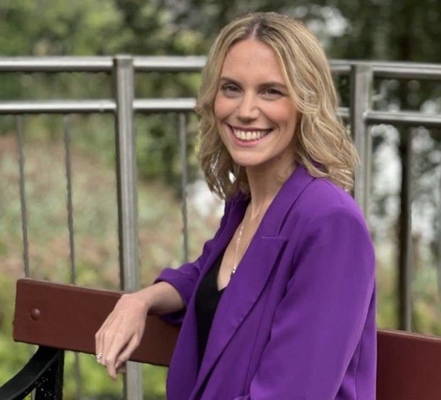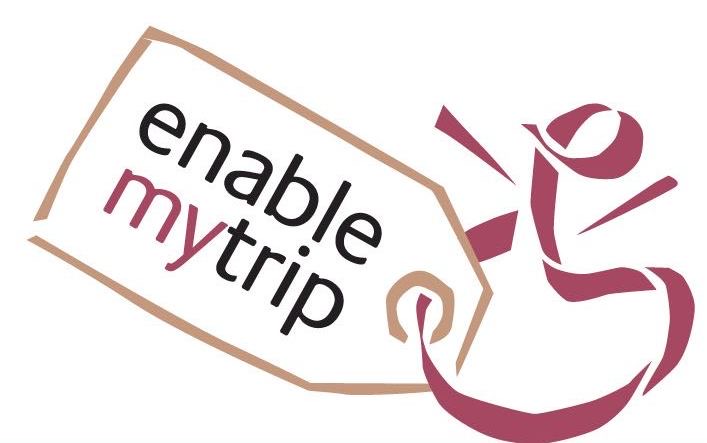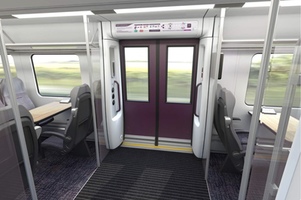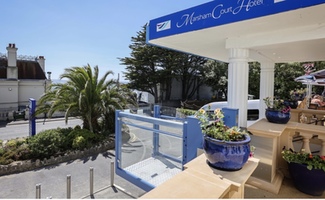
Fermanagh Disability Advocate Shelley Cowan Launches Campaign To Help Hospitality Accessibility
A Fermanagh woman, who was confined to bed, tube fed and experienced limb paralysis for 12 years, is campaigning for the rights of tourists with disabilities in Northern Ireland and the wider UK after discovering that many local hotels are still largely inaccessible to wheelchair users.
Shelley Cowan, from Tamlaght, Enniskillen, has launched her campaign, #accommodationforall, in a push to improve hospitality inclusion for all.
The ‘Hotel Accessibility Grading Classification’, that Shelley has developed, will help guests clearly understand the level of accessibility within certain venues.
During extensive research for her MSc degree in International Business, Shelley carried out interviews with people who live with wheelchair users and those with mobility issues who had previously tried to access facilities at local hospitality venues.
Her studies uncovered stories of people being forced to sleep on pool loungers because hotel rooms were inaccessible and others being unable to access toilet facilities.
Most people that she interviewed said there were vast access barriers within the hospitality sector in Northern Ireland.
As a result of her findings, Shelley set up Access Avenue, a business venture which, she says, will help people with disabilities to be included in society.
She wants to work with hospitality providers to equip them with the knowledge to make changes to their premises to move towards being more accessible and inclusive.
Sharing information on the campaign’s aim, Shelley said: “I was a wheelchair user and it was following personal experience of ineffective hospitality venues that I researched the area to improve accessibility within hospitality and tourism.
“I want everyone to have the opportunity to fully participate and explore equal, effective, enjoyable experiences - the campaign follows these 5E’s.
“I had to purchase and transport a portable hoist, blow-up pressure relieving mattresses for myself and a mattress for a carer
“To be able to stay away from home for even one night took weeks of rigorous planning and several phone calls to the hotel to ensure the venue and facilities were suitable for my needs.
“Every detail had to be meticulously checked, from physical environment to dietary requirements.”
Shelley was diagnosed with severe myalgic encephalomyelitis (ME) while still at school and was confined to bed for 12 years, later becoming a wheelchair user for ten years.
Shelley says her experience as a wheelchair user has provided her with a unique insight into the daily barriers faced by those who have disabilities.
She explained: “I still require assistance with every aspect of daily living.
“People with disabilities are being denied access to weddings and family occasions because the infrastructure is just not available.
“Hotel guests with disabilities want fair, equal service and prices comparable to other guests. They want barrier-free travel with accommodation as stated.
Interviewees noted that they want to be able to enjoy hotels as much as anyone else.
Shelley discovered that guests with disabilities find accessibility in hotels is frequently vague or exaggerated, causing unnecessary stress and disappointment.
She also highlighted negative attitudes, which she says are commonplace, causing guests with severe disabilities to feel humiliated, ignored, unwanted and a nuisance.
These industry discrepancies are one of the reasons why the Fermanagh forward-thinker wants to standardise the ratings for hotels.
Her plan is to ensure that people with accessibility issues can see immediately what facilities are on offer and suitably decide if their needs are accommodated at each venue or not.
According to Shelley’s research, there are only 17 hotels in the UK that can be classed as fully accessible, and none of them are in Northern Ireland.
She believes that not only is this a huge loss for those with disabilities, but it is also an economical loss for the hospitality industry, which she says is missing out on millions in revenue from the ‘purple pound’ – the spending power of disabled people and their households, which is worth £274 billion in the United Kingdom annually, and rising.
She says: “When people think of ‘all-inclusive’, they think of ‘all you can eat’ food and drink. I want it to mean that hotels and venues are fully accessible and inclusive.
“Tourists with disabilities and their families have money to spend and make loyal customers, bringing additional revenue with their business due to frequently needing a companion to help with requirements.
“If access was made easier for them, it would be life changing, and a game-changer for the hospitality sector.
“In 2024 it is shameful that there are not adequate facilities available, and I will do everything in my power to change this.”
For more information about the Accommodation for All campaign by Access Avenue go to accessavenue.co.uk and use the hashtag #accommodationforall
Ends
EDITOR’S NOTE
Shelley’s key finding include:
- There are only 17 fully accessible hotels in the UK - none of which are in Northern Ireland.
- There are more pet-friendly hotels than fully accessible ones.
- “The purple pound’, the spending power of disabled people, is worth £274 billion annually in the UK.
- Ensuring adequate hotel accessibility takes on average two months of rigorous planning.
- 95% of international wheelchair users get anxious about travel.
- 90% of wheelchair users are unable to source effective destinations or accommodation.
- Most wheelchair users want to travel, yet inadequate travel conditions demotivate participation.










